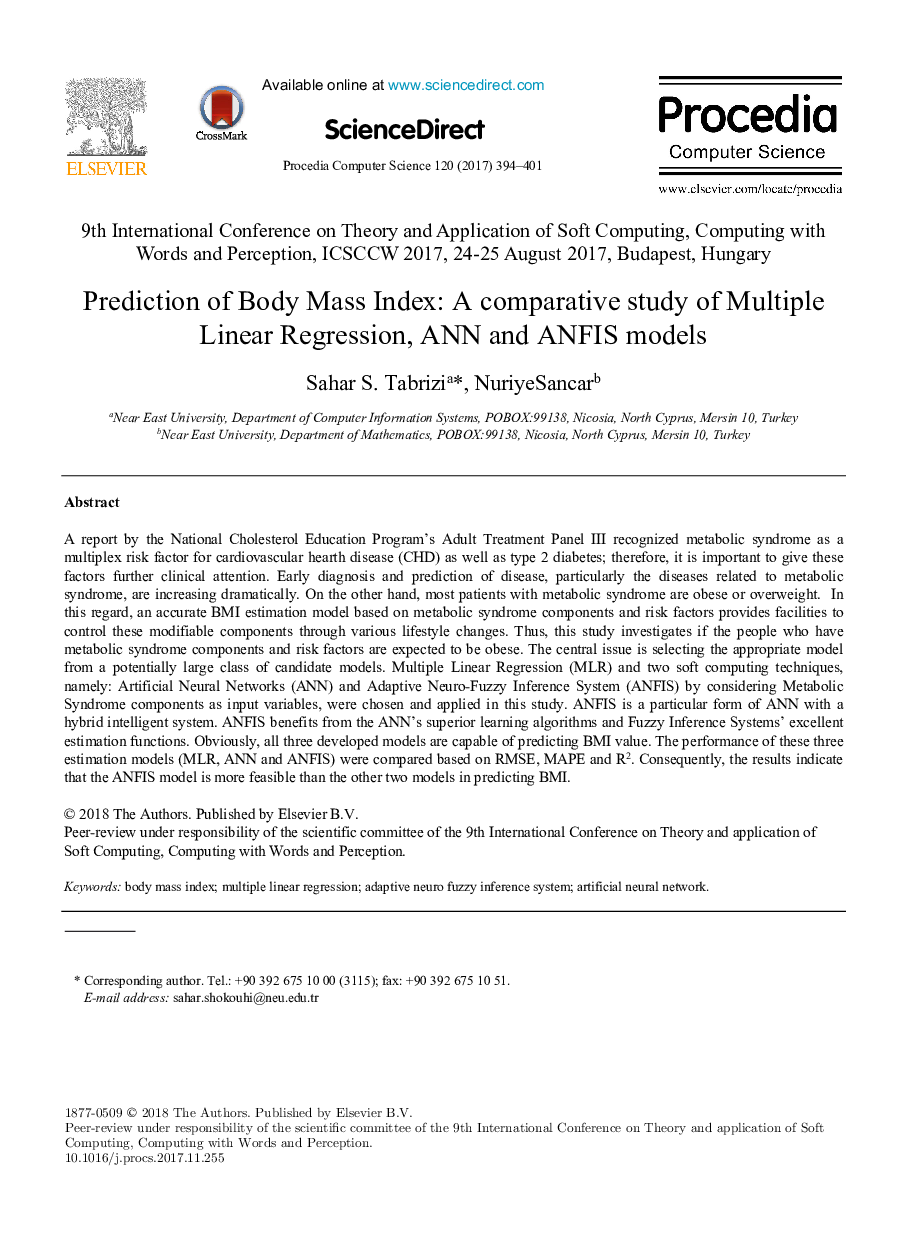| Article ID | Journal | Published Year | Pages | File Type |
|---|---|---|---|---|
| 6901783 | Procedia Computer Science | 2017 | 8 Pages |
Abstract
A report by the National Cholesterol Education Program's Adult Treatment Panel III recognized metabolic syndrome as a multiplex risk factor for cardiovascular hearth disease (CHD) as well as type 2 diabetes; therefore, it is important to give these factors further clinical attention. Early diagnosis and prediction of disease, particularly the diseases related to metabolic syndrome, are increasing dramatically. On the other hand, most patients with metabolic syndrome are obese or overweight. In this regard, an accurate BMI estimation model based on metabolic syndrome components and risk factors provides facilities to control these modifiable components through various lifestyle changes. Thus, this study investigates if the people who have metabolic syndrome components and risk factors are expected to be obese. The central issue is selecting the appropriate model from a potentially large class of candidate models. Multiple Linear Regression (MLR) and two soft computing techniques, namely: Artificial Neural Networks (ANN) and Adaptive Neuro-Fuzzy Inference System (ANFIS) by considering Metabolic Syndrome components as input variables, were chosen and applied in this study. ANFIS is a particular form of ANN with a hybrid intelligent system. ANFIS benefits from the ANN's superior learning algorithms and Fuzzy Inference Systems' excellent estimation functions. Obviously, all three developed models are capable of predicting BMI value. The performance of these three estimation models (MLR, ANN and ANFIS) were compared based on RMSE, MAPE and R2. Consequently, the results indicate that the ANFIS model is more feasible than the other two models in predicting BMI.
Keywords
Related Topics
Physical Sciences and Engineering
Computer Science
Computer Science (General)
Authors
Sahar S. Tabrizi, Nuriye Sancar,
